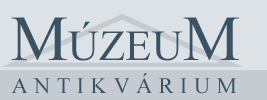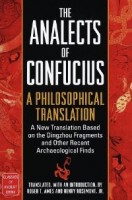categories
- Traffic and Vehicles Catalogue
- socreal.catalog
- Advertisement Catalogue
- Photo Catalogue
- Chinese and Japanese Catalogue
- New Holy Card Catalogue II.
- 12 interesting old books
 Books
Books
 Bibliophil
Bibliophil
 Antiques
Antiques
 Engraving
Engraving
 Maps
Maps
 Photos
Photos
 Antique Papers, Small Prints
Antique Papers, Small Prints
 Posters
Posters
- Circus
- Modern Graphics
- Socialist Realism
- NER Propaganda
- Others
cart
Cart is empty
You've not logged in
Ames, Roger T.; Rosemont, Henry : The Analects of Confucius - A Philosophical Translation
- description
- additional information
A New Translation Based on the Dingzhou Fragments and Other Recent Archaeological Finds.
"To quietly persevere in storing up what is learned, to continue studying without respite, to instruct others without growing weary-- is this not me?" --Confucius
Confucius is recognized as China's first and greatest teacher, and his ideas have been the fertile soil in which the Chinese cultural tradition has flourished. If influence is determined by the number of people who have lived and died in accordance with a philosopher's vision, Confucius is perhaps the most influential thinker in human history.
Now, here is a translation of the recorded thoughts and deeds that best remember Confucius--informed for the first time by the manuscript version found at Dingzhou in 1973, a partial text dating to 55 BCE and only made available to the scholarly world in 1997. The earliest Analects yet discovered, this work provides us with a new perspective on the central canonical text that has defined Chinese culture--and clearly illuminates the spirit and mindset of Confucius.
Confucius (551-479 BCE) was born in the ancient state of Lu into an era of unrelenting, escalating, violence as seven of the strongest states in the proto-Chinese world warred for supremacy. The landscape was not only fierce politically but also intellectually. Although Confucius enjoyed great popularity as a teacher, and many of his students found their way into political office, he personally had little influence in Lu. And so he began to travel from state to state as an itinerant philosopher to persuade political leaders that his teachings were a formula for social and political success. Eventually, his philosophies came to dictate the standard of behavior for all of society--including the emperor himself.
Based on the latest research and complete with both Chinese and English texts, this revealing translation serves both as an excellent introduction to Confucian thought and as an authoritative addition to sophisticated debate.
"To quietly persevere in storing up what is learned, to continue studying without respite, to instruct others without growing weary-- is this not me?" --Confucius
Confucius is recognized as China's first and greatest teacher, and his ideas have been the fertile soil in which the Chinese cultural tradition has flourished. If influence is determined by the number of people who have lived and died in accordance with a philosopher's vision, Confucius is perhaps the most influential thinker in human history.
Now, here is a translation of the recorded thoughts and deeds that best remember Confucius--informed for the first time by the manuscript version found at Dingzhou in 1973, a partial text dating to 55 BCE and only made available to the scholarly world in 1997. The earliest Analects yet discovered, this work provides us with a new perspective on the central canonical text that has defined Chinese culture--and clearly illuminates the spirit and mindset of Confucius.
Confucius (551-479 BCE) was born in the ancient state of Lu into an era of unrelenting, escalating, violence as seven of the strongest states in the proto-Chinese world warred for supremacy. The landscape was not only fierce politically but also intellectually. Although Confucius enjoyed great popularity as a teacher, and many of his students found their way into political office, he personally had little influence in Lu. And so he began to travel from state to state as an itinerant philosopher to persuade political leaders that his teachings were a formula for social and political success. Eventually, his philosophies came to dictate the standard of behavior for all of society--including the emperor himself.
Based on the latest research and complete with both Chinese and English texts, this revealing translation serves both as an excellent introduction to Confucian thought and as an authoritative addition to sophisticated debate.
| condition: |      |
| category: | Books > Foreign Language Books > Books in English > |
| category: | Books > Religion > Oriental religions > |
| category: | Books > Philosophy > |
| category: | Books > Orientalism > |
| publisher: | Ballantine, (1998) |
| item number / ISBN: | 9780345401540 |
| binding: | half-cloth bound (in original dust jacket) |
| pages: | 327 |
| language: | English |









 Telefon:
Telefon: E-mail:
E-mail:







